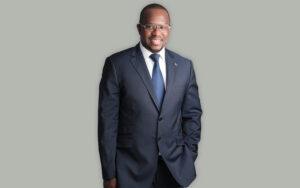
Predation and abuse by lecturers in Nigerian universities: How can we combat this hydra-headed monster?
I spoke with a student who described how some professors exploit them sexually for grades. She stated, “They victimize you when you refuse to lower your standards.” Another student described his own experience. He reported that his lecturer who was also his project supervisor called him and invited him to a bar where he was already seated with some friends eating and drinking, and when they were about to depart, the lecturer asked him to pay the bill.
A friend called me last year and asked if I had any ‘contact’ with the administrators at a university in Nigeria [name withheld]. According to her, this lecturer failed her sister because she rejected his sexual advances. Each time she took the exam, he gave her a failing grade. When she brought up the issue, the lecturer connived with two of his colleagues, who also failed her (lecturers engaging in aluta). If she fails his course alone and the matter is brought up, it could be interpreted as a confirmation of the allegation, I suppose. All efforts to resolve this issue proved futile. Therefore, the sister did not graduate and is now seeking admission to another university.
I feel compelled to write about this because it keeps occurring. Lecturers are expected to educate their students, do research in their fields of expertise, and help them develop into professionals who will enrich society and advance the nation. But as we’ve seen from these students’ stories, and I’m sure other students have had similar experiences, there are some lecturers who are abusing their powers as academic mentors and are too numerous to be overlooked. We need to find a way to stop this problem in our schools as soon as possible. Though I am conversant with the Nigerian system having graduated from Ahmadu Bello University (ABU) Zaria. But as time has passed since I left the Nigerian university environment, I wanted to understand the recent trends and I got a lecturer’s perspective (an Associate Professor in one of the Nigerian Universities).
I asked the Prof certain questions about marking and grading of exams and assessments. He said the lecturer marks the scripts and gives the grades. I asked if they have a second marker who looks at the script and he replied, ‘no’. I asked if they give feedback on the grades. He said, ‘No’ and added, ‘With the large number of students, how can you give feedback for each student’s work?’ I asked, ‘What if a lecturer chooses to fail a student?’ He replied, ‘then the student fails.’ I asked, ‘Is there any opportunity for the student to seek redress?’ He answered, ‘Yes. The student will write through the Head of Department (HOD) if he or she is dissatisfied with the grade.’ But he quickly added that ‘many students are afraid of pursuing this route for fear of being victimized, so they accept whatever grades they are given.’ Our conversation led me to the conclusion that Nigerian universities are riddled with loose ends that undermine accountability, promote impunity, and prevent students from challenging their victimization at the hands of rogue professors.
Sex for grades is a significant issue facing our institutions of higher education. The absence of a robust system for redress where offenders are publicly punished and humiliated, and, where these channels exist, the possibility of not being believed, and, most importantly, the fear of negative consequences are cited as the primary reasons students fail to report this unethical behaviour. Administrators of higher education institutions must therefore be more deliberate in their efforts to combat these corrupt practices. We can use the best practices adopted by educational institutions in developed nations as a benchmark. Universities in the United Kingdom, for instance, use a variety of marking methods, including “single marking,” “moderation by retrospective sampling,” “check marking,” and “double marking.” As professors, we provide constructive feedback and justifications for the grades we assign. We invest a great deal of time and effort to provide detailed feedback on the students’ writing in an effort to help them better their writing and reasoning for future assessments.
In my school, for instance, the nature, timing, and grading criteria of an assessment are communicated to students at the outset of each course. By sharing the grading criteria with the student, we provide a summary of deliverables for the various categories of grades. A sample of work is moderated or extensively remarked by a second lecturer to ensure consistency and fairness when marking scripts. Teams that assign grades take notice of and resolve any disagreements. A student may appeal an exam board’s decision if they believe an error or procedural irregularity affected their results, or if there is evidence of bias or prejudice during the evaluation process.
In order to effectively tackle the various challenges faced by institutions of higher education, it is imperative to embrace a comprehensive approach that directly confronts all issues, rather than employing a fragmented strategy that exclusively prioritizes the concerns of academics. It is imperative to take into account the interests of the students as well. In order to safeguard student victims, it is imperative to implement effective monitoring mechanisms, like the grading system employed by universities in developed countries. Additionally, it is crucial to establish a robust framework for reporting instances of misbehaviour and administering appropriate disciplinary measures, regardless of the social standing or affiliations of the perpetrators involved. Finally, it is important to acknowledge that certain students may exhibit a lack of motivation and engage in behaviours that compromise their integrity by using their sexuality as a means to obtain favourable academic grades. However, it is equally imperative to explore strategies aimed at safeguarding academics from potential victimization in such situations.
About the Author
Kohol Shadrach Iornem, PhD, teaches Business Management and Organisational Behaviour. He is a leadership coach, speaker, and author of ‘A Social Science Student’s Guide to Surviving Your PhD’ published by the Open University Press (2021). He is a member of several professional bodies including the Maxwell Certified Leadership Team and the British Academy of Management.
